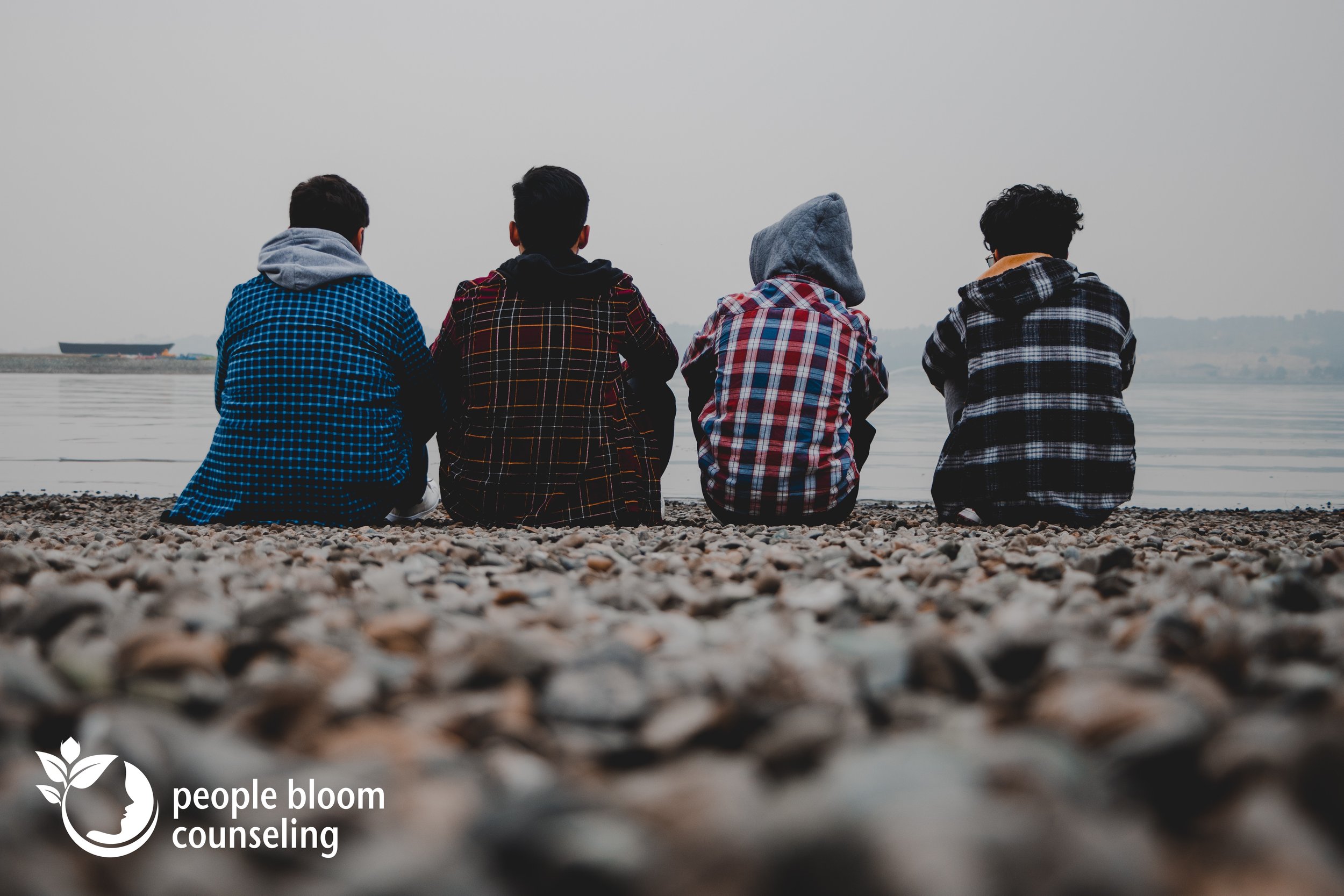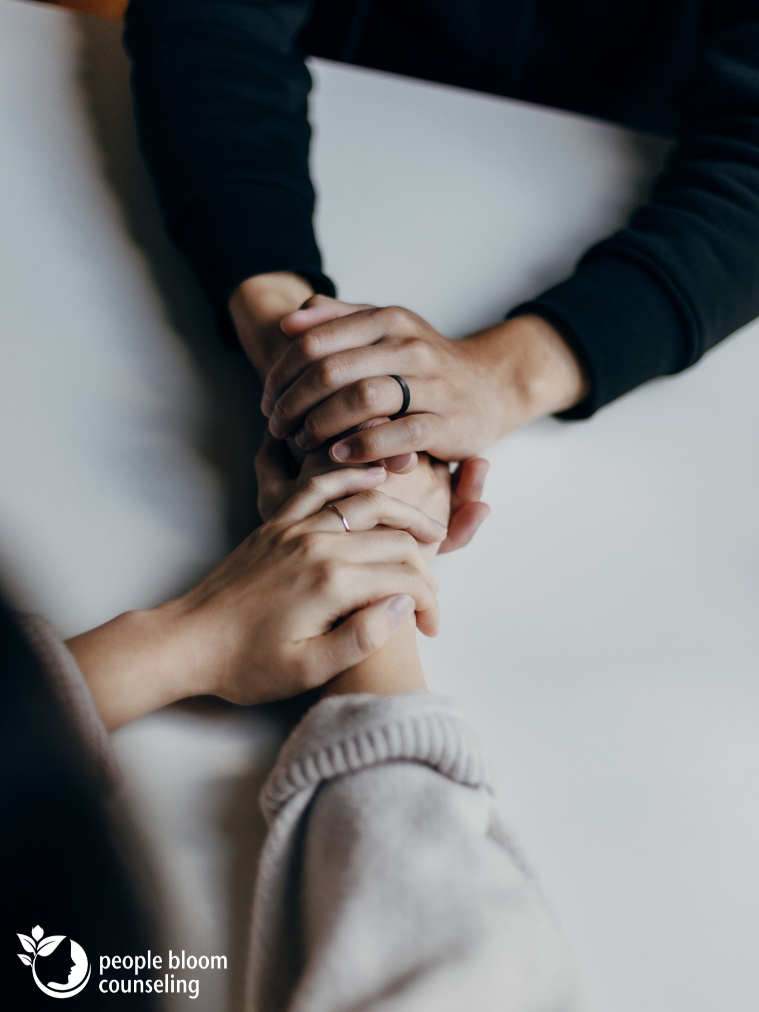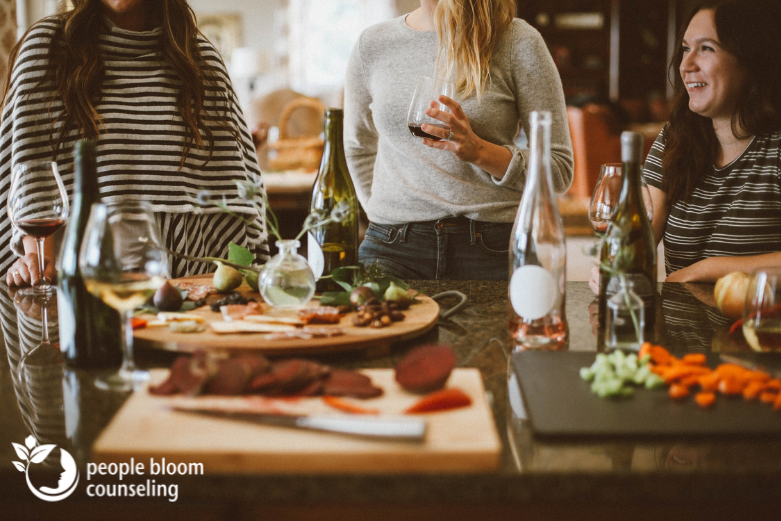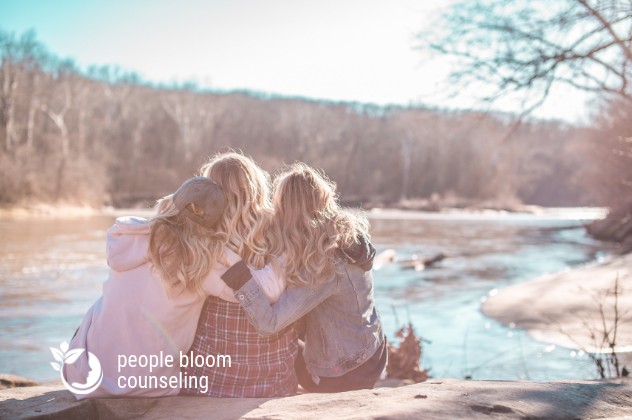A couple of months ago, I went out for lunch with some of my college friends. We caught a glimpse of the early summer weather on a Redmond patio. We don’t see each other often, but when we do, it’s as if time never passed. We teased and caught up with each other. There was a certain ease that long-time friends bring.
I was sharing one of my recent relationship struggles, when my friends nodded and gave me their undivided attention. One of them asked me a question, which prompted me to keep going. After all, I had more to say on this matter. I had barely taken a few minutes of airtime when, during a short pause, another of our friends began telling their story. Now I know it was their way of relating to what I had to say, but it was no longer about my experience. It became theirs and it never came back to me.
This left me feeling like I was dropped.
As a therapist, I know these moments happen all the time. There were quite a few of us. It was noisy outside. It’s not like we had a talking stick to pass around. But having been through these experiences, I know there are ways we can share space while feeling heard.
Here are some tips to consider the next time you’re with your friends:
Hear them out
A few minutes can feel like a long time but it really isn’t. They’re formulating their thoughts to put things in a nutshell. There are natural pauses for them to catch their breath. When was the last time you got undivided attention for a long stretch of time that isn’t in a therapist’s office or sitting around a Healing Circle? Here, you’re offering something therapeutic to your friend by letting them have the floor. If they have more to say, it means they’re not done. Let them go for a bit longer. Another few minutes of airtime can make the difference between feeling heard and feeling dropped.
Validate what they’re going through
This is an age-old method for helping someone feel heard and understood. This is not about you being totally on board with what they have to say, thinking that you would’ve felt the same or made the same choice if the tables were turned. Rather, this is about you putting yourself in their shoes and walking around in them. You, in their shoes. You, for a moment, sense their struggle and see why it could be difficult for them, even if it wouldn’t be difficult for you. Saying things like, “That sounds hard!” or “Yep, that would suck!” can go a long way. That’s because for a moment, you allowed yourself to be them.
Hold off on your own story
You likely have a story you can draw upon. Much like the #MeToo movement, it helps to know that you’re not alone when you hear other people’s stories and can share yours. However, just wait a few more minutes. If your story is also top of mind for you, you’ll have your turn. Don’t cut in when someone is still in the thick of their story. Assuming you’re surrounded by friends who have a deep respect for each other, your friends will make space for you.
That day, I just needed a few more minutes to share the impact this struggle had on me and then I would have been ready to move on. I wasn’t looking for someone to problem-solve or even tell me they had a similar struggle. I only wanted to be heard.
You might ask, “Well, why didn’t you bring the conversation back to you”? By then, the topic swiftly moved on to dynamics between two people, which evolved into pets, kids and travel. The wind had been knocked out of my sails and I knew conversation would flow better if we just kept going.
Hearing you out
When clients have friends and family who hear them out, that makes our job as therapists easier. I’m often grateful when clients talk about their good friends and how supported they feel. Of course, your friends can’t be your therapist and that’s where we come in. We can hear you out, make it about you, validate what you’re going through, and only share something from our lives if it can help you. And ultimately, we want to help you towards your goals, however that might further your life.
If you need undivided attention, 55-min at a time, we’ll be here.
Ada Pang is the proud owner of People Bloom Counseling, a Redmond psychotherapy practice. She helps unhappy couples find safety and connection in their relationship. She also helps cancer thrivers and their caregivers integrate cancer into their life stories. She’s grateful for her friends and despite them missing each other at times, they’re there to support and care for each other. She hopes that even in moments of disconnection, you can find your way back to your people too.





















